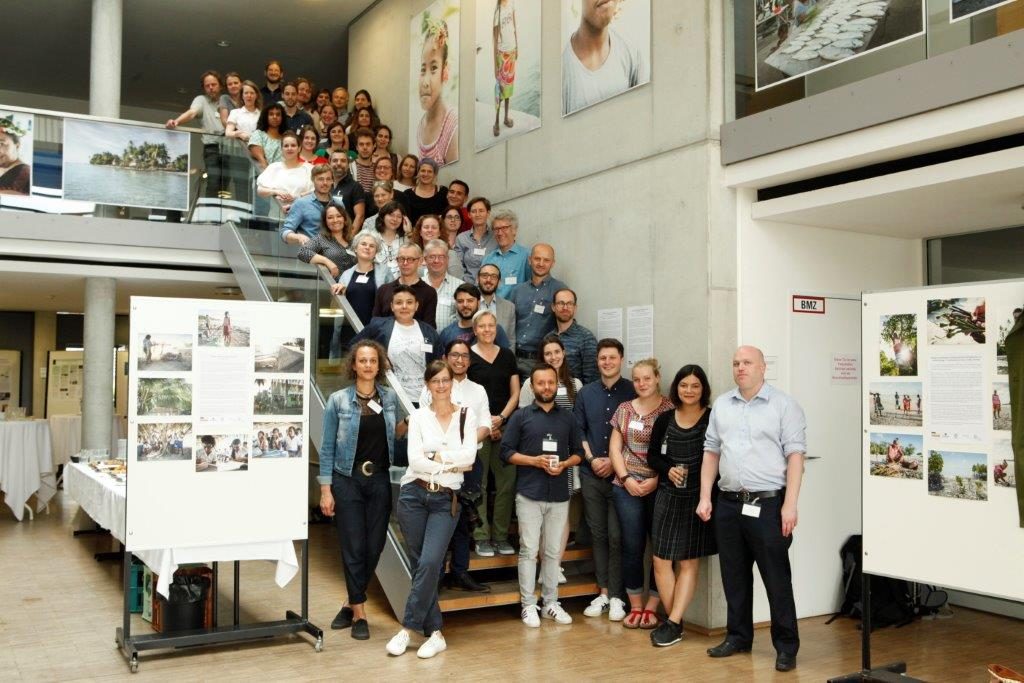
More than 60 scientists from 14 countries met from 6 to 8 June at the University of Kiel for the workshop “Narratives and Practices of Environmental Justice” to exchange views on issues and questions of environmental justice.
A small and affluent part of the world’s population is claiming an increasing share of the Earth’s resources, while at the same time polluting and destroying valuable habitats on land and in the oceans. Often those groups that are least responsible for developments are affected. How can we achieve a more equitable approach to environmental crises? Which dimensions of justice (e.g. distribution of costs and benefits, recognition of identities, participation in political decision-making) are affected and what different concepts of justice (equality, needs, merit, etc.) stand in opposition to each other? On the one hand, the workshop brought together international researchers from the fields of geography, social, political and legal sciences and environmental ethics. On the other hand, the exchange between science and society was also to be promoted in order to bring the topic more intensively into the public debate. For this reason, artists and activists were also among the participants. Last but not least, the workshop served as the starting signal for the new international network on environmental justice (EnJust – Network for Environmental Justice), which was founded on 8 June and which is to serve as an interface between different scientific disciplines, politics and civil society in the future. Further information about the network, which of course always welcomes new members, can be found at www.enjust.net, #enjust or via the email enjust[at]geographie.uni-kiel.de.
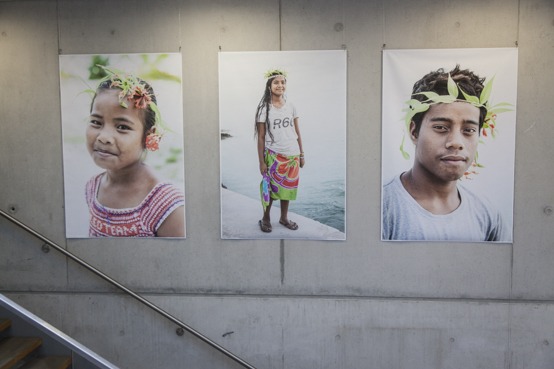
The workshop was opened with a keynote speech by Gordon Walker (Environment Centre, Lancaster University, UK), one of the leading geographers in the field of environmental justice. His lecture entitled “Environmental justice in space and time: opening up temporalities” highlighted the temporality of justice issues. While the various spatial components of environmental justice have already been considered in detail (e.g. spatial distribution of environmental costs, geography of vulnerability or responsibility), temporal patterns of environmental crises have so far been largely ignored. For example, many social consequences of environmental problems can be described as a form of slow violence, a subtle form of social violence that is only effective over long periods of time and is difficult to detect and even harder to prove. In addition, the rhythms of social life must also be given more attention in order to analyse in what way, for example, certain population groups are particularly exposed to certain negative environmental factors (e.g. particulate matter pollution from commuters) through their routines in the area of action alone. With his plea for greater time sensitivity, Walker opens up a whole new dimension in the analysis of environmental justice issues.
Keynote: Gordon Walker “Environmental justice in space and time: opening up temporalities”
Further partial aspects of this broad field were then addressed in the following two days in the context of seven thematic panels or 31 lectures. The session “Conceptualizing Environmental Justice” was dedicated to the further development of the theoretical basis of environmental justice. Different principles of justice, such as participation, Rawls’ goal of fairness, the capabilities approach or the principle of equality were critically examined and examined with regard to their suitability to serve as a basis for justice discourses. The session on “Social movements and counter narratives” dealt with examples of civil society movements from various countries (including Argentina, Mexico, Germany, Maghreb states), each of which is demanding environmental justice in a different way, using different discourse elements and narratives. The panel on “Justice dimensions of climate politics” dealt with the justice-theoretical implications of strategies for dealing with climate change. Be it REDD+, Carbon Pricing, Natural Hazard Management or climate adaptation strategies: All these approaches have far-reaching consequences with regard to the distribution of costs and benefits and other justice dimensions. The session on “Marine Justice” highlighted environmental justice in the maritime context. Questions of international law, the cross-border management of natural resources or the interests of fishermen are always related to the issue of the commons, which has long shaped the social science discussion of environmental problems. The health sciences, which were at the centre of the session on “Public health and environmental justice”, have long been concerned with the question of the extent to which environmental burdens are unequally or unfairly distributed, and with the various possibilities of scientifically proving these social patterns and analysing them in terms of their effects. The panel on “Justice dimensions of environmental politics” examined various examples of environmental and nature conservation policy measures (nature reserves, payments for ecological services, etc.) with regard to their implications for a just society. At the session on “Environmental conflict and transformation”, studies were presented that aim to contribute to a better understanding of the social and cultural dynamics of environmental conflicts using very different methods (discourse analysis, Q-method, participatory theatre, etc.).
Results of the Worldcafé-Session
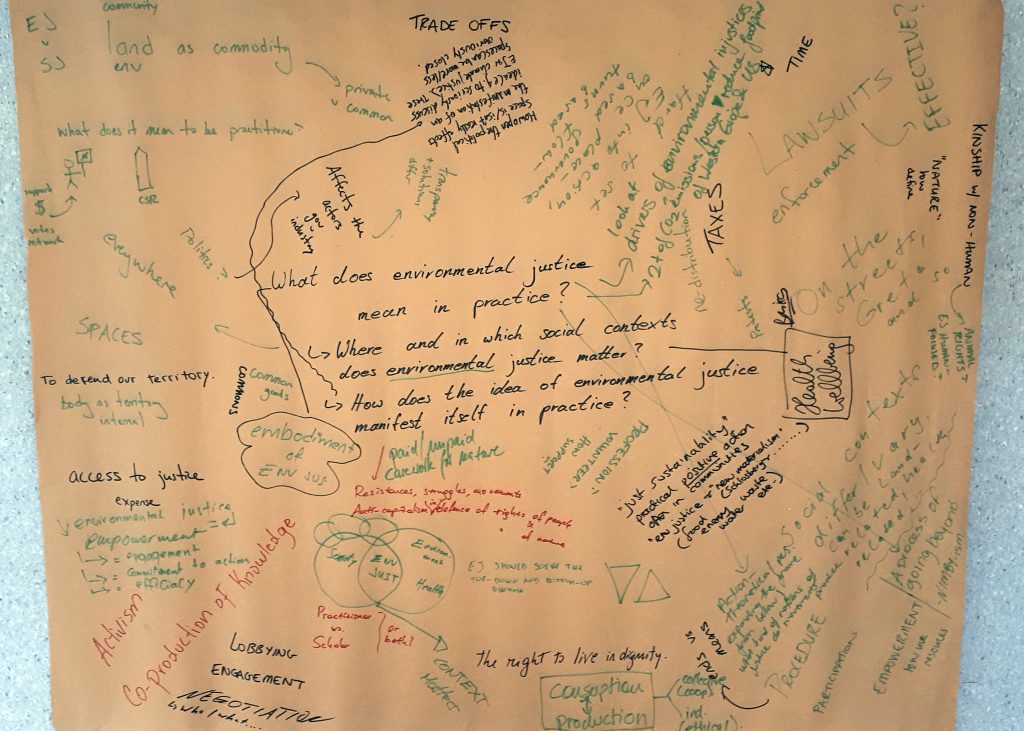
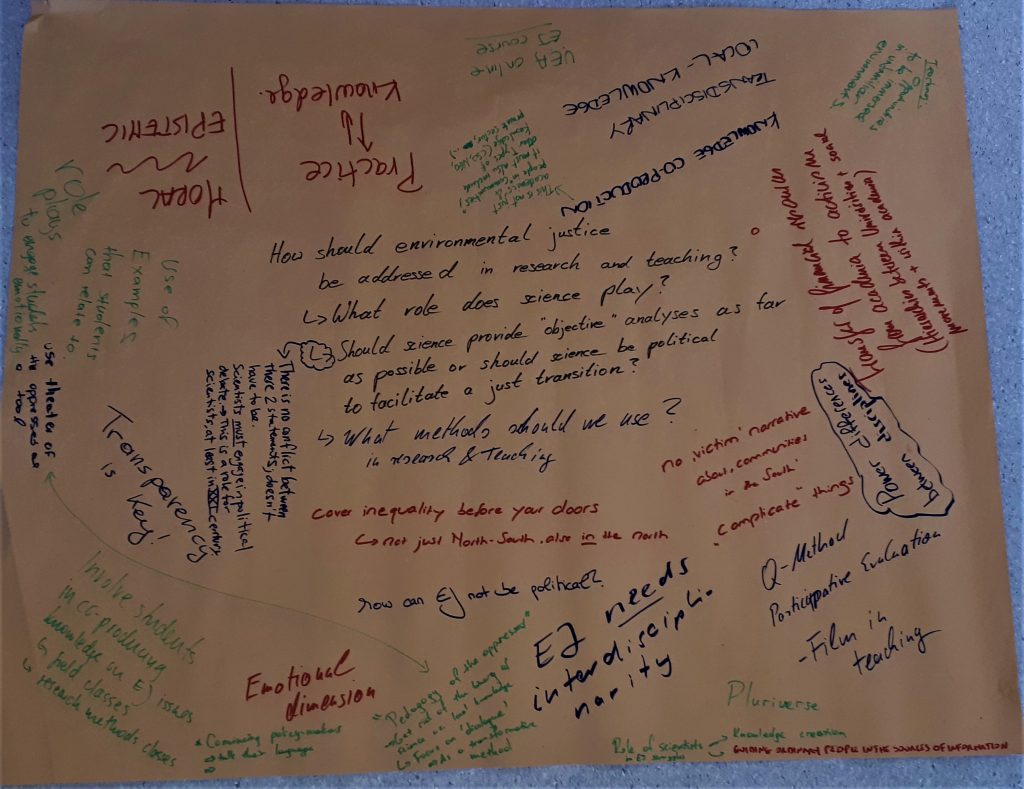
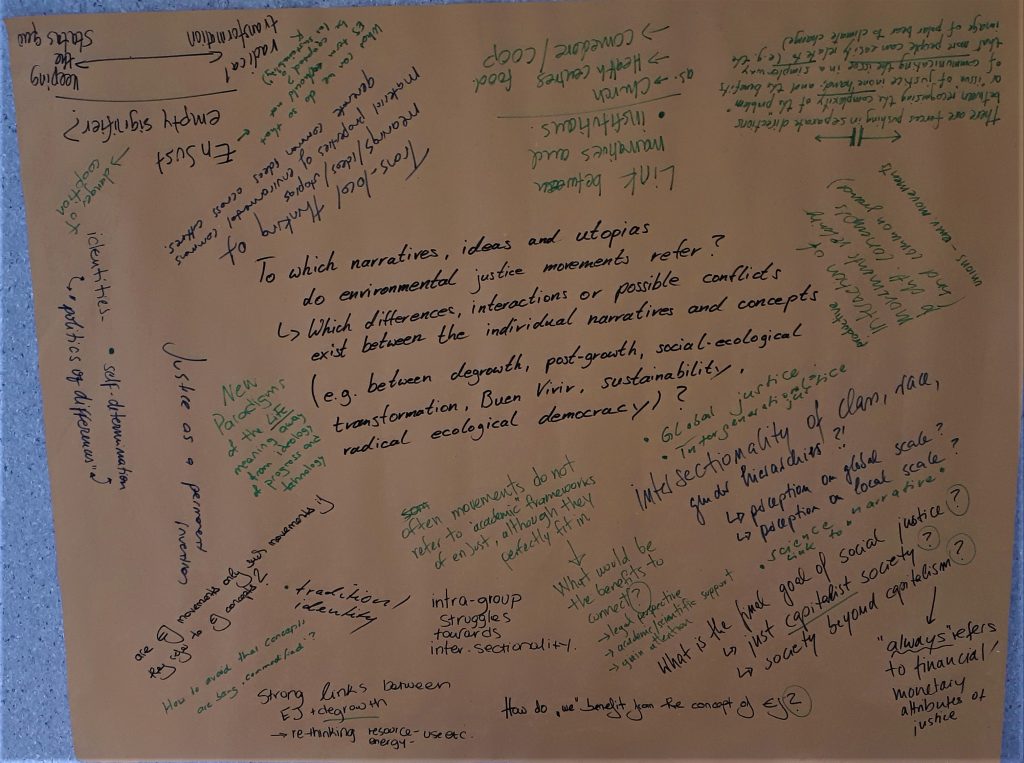
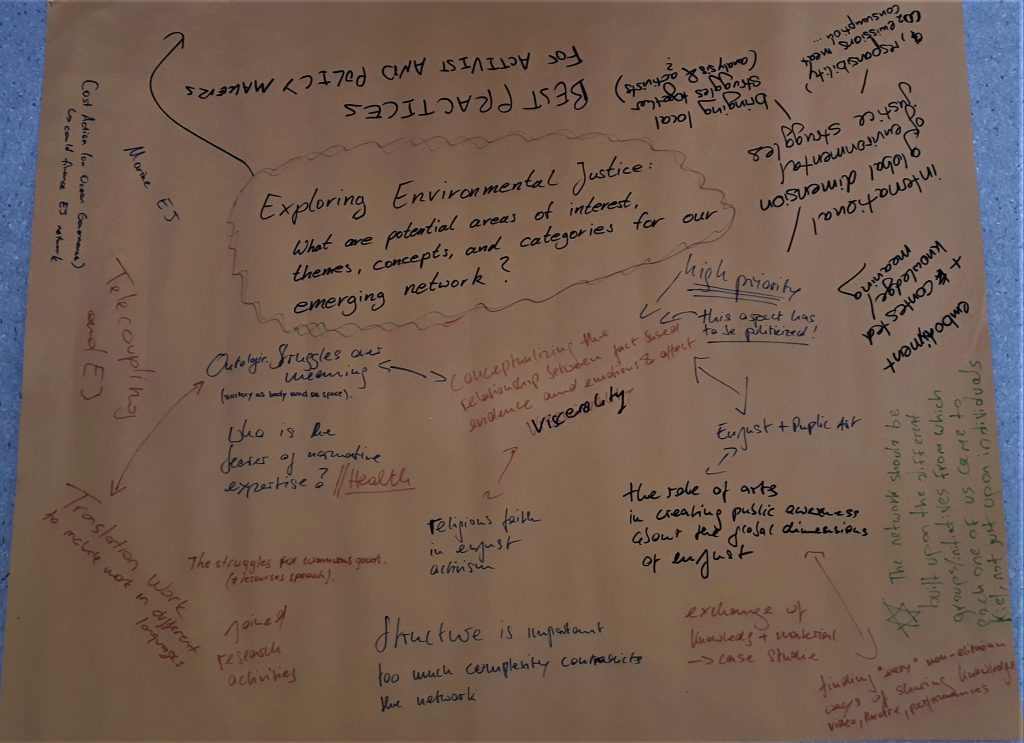
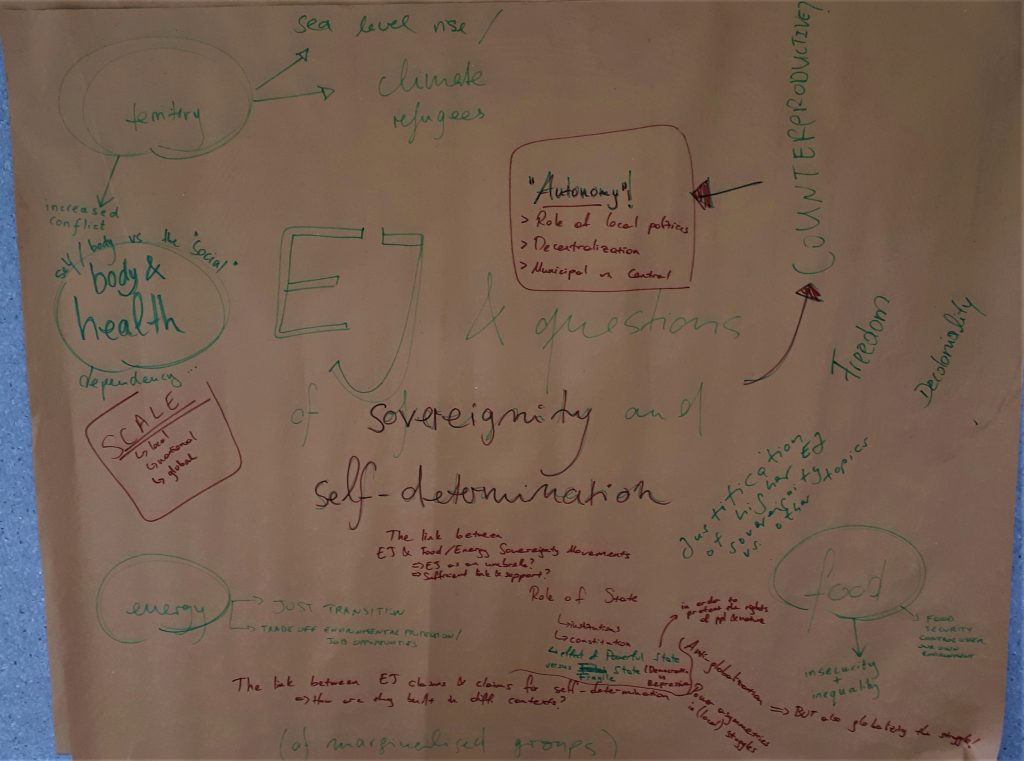
The workshop was lightened up by events based on an active exchange of ideas. In addition to a world café, where the social relevance of research on environmental justice was discussed, there was a panel discussion with top-class participants, where representatives from planning, science, civil society, law and party politics debated with each other. Participants were: Roda Verheyen, a lawyer from Hamburg, who is currently pursuing several climate lawsuits in German courts, Jean Carlo Rodriguez de Fransisco from the German Development Institute, Daniel Morchain, who worked for Oxfam for a long time and who is now working at the International Institute for Sustainable Development, Gunnar Maus as a representative of regional planning in Schleswig-Holstein and the chairman of the Green Party in Schleswig-Holstein, Steffen Regis.
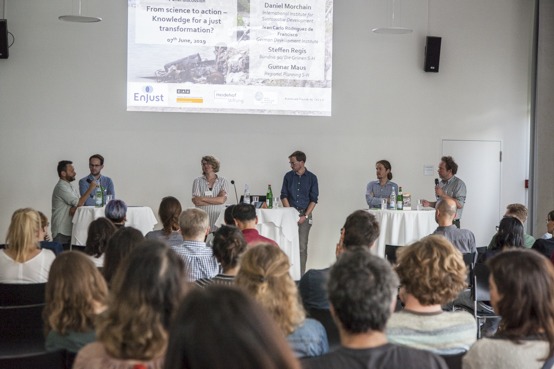
Parallel to the events, an exhibition with photos by Barbara Dombrowski, whose work deals with the lived reality of climate change, took place in the foyer of the Wissenschaftszentrum Kiel (see next page). With her large-format portraits and everyday scenes from Kiribati, the state in Oceania whose islands are directly threatened by sea-level rise, she gives a human face to the otherwise abstract phenomenon of climate change without showing the people as victims. This coexistence of scientific discourse, social debate and artistic challenge gave the workshop its special character. There is a concrete hope that this workshop will mark the beginning of an intensive and sustainable cooperation of national and international scientists and activists who are dealing with issues of environmental justice. Already next year the next workshop of the EnJust-network is planned to take place; Hartmut Fünfgeld from the University of Freiburg has promised to organize it.
Florian Dünckmann, Jonas Hein, Silja Klepp

